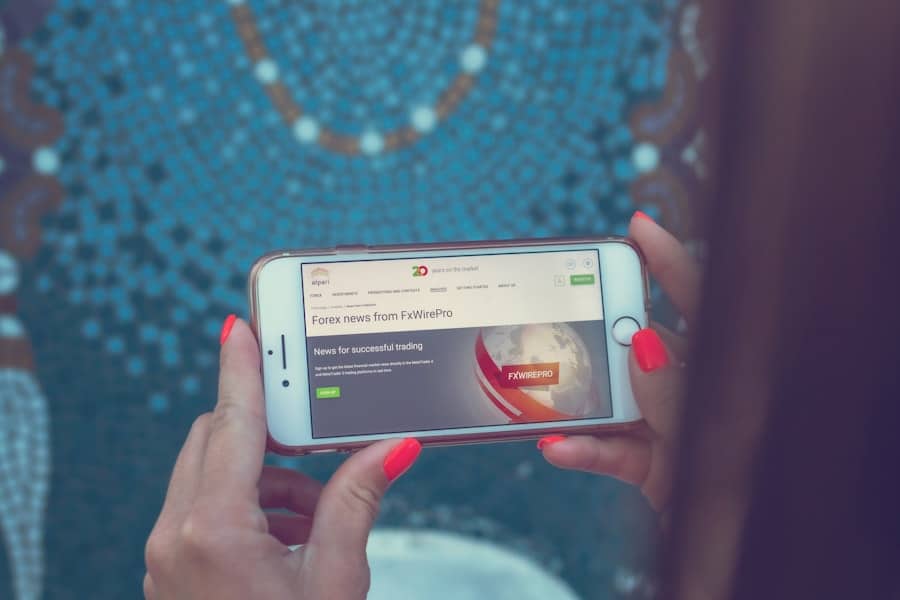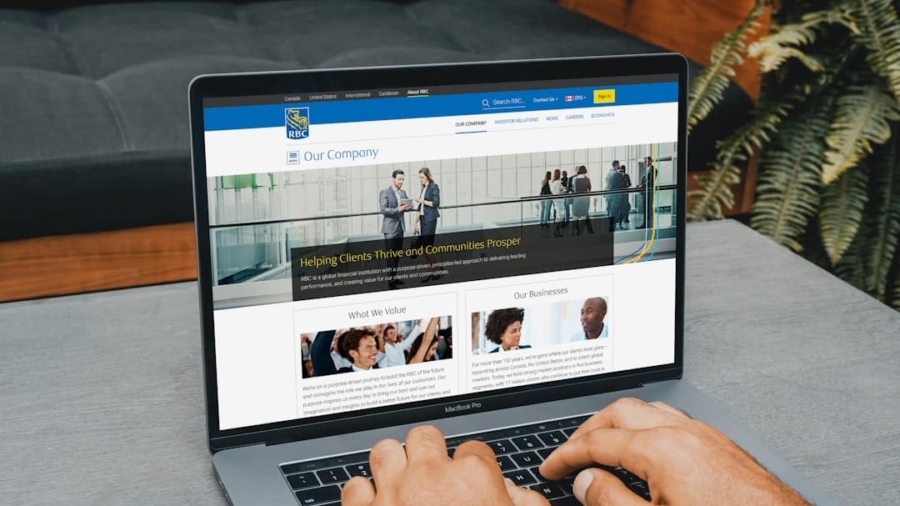Genetic counseling platforms have emerged as pivotal tools in the realm of personalized medicine, bridging the gap between complex genetic information and patient understanding. These platforms serve as digital interfaces that connect individuals with genetic counselors, enabling them to navigate the intricate landscape of genetic testing and its implications. As the field of genetics continues to evolve, the demand for accessible and comprehensible genetic information has surged, prompting the development of various online and mobile platforms designed to facilitate genetic counseling.
These platforms not only democratize access to genetic expertise but also empower patients to make informed decisions regarding their health and familial risks. The rise of genetic counseling platforms is a response to the increasing complexity of genetic data and the growing number of genetic tests available. With advancements in genomic technologies, individuals are now able to obtain insights into their genetic predispositions for a myriad of conditions, from hereditary cancers to rare genetic disorders.
However, the interpretation of these results often requires specialized knowledge that many patients lack. Genetic counseling platforms aim to fill this knowledge gap by providing users with access to trained professionals who can elucidate the significance of their genetic information, thereby fostering a more informed patient population.
Key Takeaways
- Genetic counseling platforms play a crucial role in providing accessible and personalized genetic information to individuals and families.
- Biotech accessibility is essential for ensuring that genetic counseling and testing services are available to all individuals, regardless of their geographic location or socioeconomic status.
- Genetic counseling platforms improve accessibility by offering remote consultations, educational resources, and support for individuals and healthcare providers.
- The use of genetic counseling platforms has the potential to reduce healthcare disparities and improve equity by providing tailored genetic information and support to underserved populations.
- Despite their benefits, genetic counseling platforms face challenges such as privacy concerns, limited access to technology, and the need for ongoing education and training for healthcare providers.
The Importance of Biotech Accessibility
Biotech accessibility is a critical issue in contemporary healthcare, as it directly influences the ability of individuals to benefit from advancements in medical science. The rapid pace of biotechnological innovation has led to the development of groundbreaking therapies and diagnostic tools, yet these advancements are often not equitably distributed. Barriers such as socioeconomic status, geographic location, and educational background can significantly hinder access to essential biotech services, including genetic counseling.
Ensuring that all individuals have equal opportunities to access these resources is vital for promoting public health and advancing health equity. The importance of biotech accessibility extends beyond mere availability; it encompasses the need for understanding and engagement with biotechnological advancements. For instance, individuals from marginalized communities may face additional hurdles in comprehending complex genetic information due to language barriers or lack of familiarity with medical terminology.
This lack of understanding can lead to disparities in health outcomes, as individuals may be less likely to pursue testing or treatment options that could significantly impact their health. Therefore, addressing these accessibility issues is not only a matter of equity but also a public health imperative that can lead to improved health outcomes across diverse populations.
How Genetic Counseling Platforms Improve Accessibility

Genetic counseling platforms enhance accessibility by leveraging technology to connect patients with genetic counselors regardless of their physical location. Traditional genetic counseling often requires in-person visits, which can be logistically challenging for many individuals, particularly those living in rural or underserved areas. By offering virtual consultations, these platforms eliminate geographical barriers and allow patients to receive expert guidance from the comfort of their homes.
This shift towards telehealth has been particularly beneficial during the COVID-19 pandemic, where in-person visits were restricted, highlighting the potential for remote counseling to become a standard practice in genetic healthcare. Moreover, genetic counseling platforms often incorporate user-friendly interfaces and educational resources that demystify complex genetic concepts. Many platforms provide interactive tools that allow users to explore their family history, understand inheritance patterns, and visualize potential genetic risks.
By presenting information in an accessible format, these platforms empower patients to engage actively in their healthcare decisions. Additionally, some platforms offer multilingual support and culturally tailored resources, further enhancing accessibility for diverse populations. This multifaceted approach ensures that individuals from various backgrounds can access vital genetic information and counseling services.
The Impact of Genetic Counseling Platforms on Healthcare Equity
The advent of genetic counseling platforms has significant implications for healthcare equity. By making genetic counseling more accessible, these platforms help to level the playing field for individuals who may have previously faced barriers to receiving such services. For example, low-income individuals or those without adequate health insurance may have found it challenging to afford traditional genetic counseling services.
Furthermore, the integration of genetic counseling platforms into public health initiatives can enhance outreach efforts aimed at underserved communities. For instance, community health organizations can partner with these platforms to provide targeted education and counseling services tailored to specific populations at risk for certain genetic conditions.
This proactive approach not only increases awareness but also fosters trust within communities that may have historically been hesitant to engage with healthcare systems due to past injustices or discrimination. By prioritizing equity in access to genetic counseling, these platforms contribute to a more inclusive healthcare landscape.
Challenges and Limitations of Genetic Counseling Platforms
Despite their potential benefits, genetic counseling platforms face several challenges and limitations that must be addressed to maximize their impact on accessibility and equity. One significant concern is the variability in the quality of services offered across different platforms. While some may provide comprehensive support and access to qualified professionals, others may lack rigorous standards or oversight, leading to inconsistent experiences for users.
This disparity can undermine trust in digital counseling services and deter individuals from seeking help. Additionally, there are ethical considerations surrounding privacy and data security that must be navigated carefully. Genetic information is inherently sensitive, and users may be apprehensive about sharing their data on digital platforms due to fears of misuse or breaches of confidentiality.
Ensuring robust data protection measures and transparent privacy policies is essential for building user confidence in these services. Furthermore, as technology continues to evolve, there is a risk that certain populations may be left behind if they lack access to necessary devices or internet connectivity. Addressing these challenges will require ongoing collaboration between technology developers, healthcare providers, and policymakers.
The Future of Genetic Counseling Platforms in Biotech Accessibility

Streamlining the Counseling Process
AI algorithms could assist counselors in analyzing complex genetic data more efficiently, allowing for quicker turnaround times for patients seeking answers about their genetic risks. Additionally, AI-driven chatbots could provide preliminary guidance and support for users before they engage with a human counselor, further streamlining the process.
Personalized Healthcare Solutions
As public awareness of genetics grows, there is likely to be an increase in demand for personalized healthcare solutions. Genetic counseling platforms can capitalize on this trend by expanding their offerings beyond traditional counseling services. For example, they could incorporate features such as personalized health management plans based on genetic predispositions or connect users with clinical trials relevant to their genetic profiles.
Shaping the Future of Accessible Healthcare
By evolving alongside advancements in biotechnology and patient needs, these platforms can play a crucial role in shaping the future landscape of accessible healthcare.
Case Studies: Successful Implementation of Genetic Counseling Platforms
Several case studies illustrate the successful implementation of genetic counseling platforms and their positive impact on accessibility and patient outcomes. One notable example is the use of telehealth-based genetic counseling services during the COVID-19 pandemic by various healthcare institutions. For instance, a prominent cancer center implemented a virtual genetic counseling program that allowed patients at high risk for hereditary cancers to receive timely consultations without needing to visit the facility in person.
This initiative not only maintained continuity of care during a challenging time but also demonstrated high patient satisfaction rates due to the convenience and accessibility offered by virtual consultations. Another compelling case study involves a platform designed specifically for underserved populations. A nonprofit organization launched an online genetic counseling service aimed at providing resources and support for individuals from low-income backgrounds or minority communities who are at risk for hereditary conditions such as sickle cell disease or cystic fibrosis.
By partnering with community health workers and leveraging local outreach efforts, this platform successfully engaged individuals who might otherwise have been unaware of their genetic risks or hesitant to seek help due to financial constraints. The initiative resulted in increased testing rates and improved health literacy among participants, showcasing how targeted efforts can effectively address disparities in access to genetic counseling.
The Continued Evolution of Genetic Counseling Platforms in Biotech Accessibility
As we move forward into an era characterized by rapid advancements in biotechnology and personalized medicine, the evolution of genetic counseling platforms will be crucial in ensuring equitable access to these innovations. The ongoing development of user-friendly interfaces, integration of advanced technologies like AI, and commitment to addressing ethical concerns will shape how these platforms operate in the future. By prioritizing accessibility and inclusivity, stakeholders can work together to create a healthcare environment where all individuals have the opportunity to understand their genetic health and make informed decisions about their care.
As we learn from successful implementations and address existing challenges, there is potential for these platforms not only to transform individual lives but also to contribute significantly to public health outcomes on a broader scale. The future holds promise for a more equitable healthcare landscape where everyone can benefit from the advancements made possible by genetics and biotechnology.
Genetic counseling platforms play a crucial role in making biotech more accessible to individuals seeking information about their genetic makeup. These platforms provide valuable insights and guidance to help people understand their genetic predispositions and make informed decisions about their health. In a related article, How Smartwatches Are Enhancing Connectivity, discusses how wearable technology like smartwatches is revolutionizing the way we monitor our health and stay connected to important health information. Just as genetic counseling platforms are improving accessibility to genetic information, smartwatches are enhancing connectivity and empowering individuals to take control of their health in new and innovative ways.
FAQs
What is genetic counseling?
Genetic counseling is a process that helps individuals and families understand and adapt to the medical, psychological, and familial implications of genetic contributions to disease.
What are genetic counseling platforms?
Genetic counseling platforms are online tools and resources that provide access to genetic counseling services, information, and support for individuals and families seeking guidance on genetic testing and related issues.
How do genetic counseling platforms contribute to biotech accessibility?
Genetic counseling platforms make genetic counseling services more accessible to a wider population by providing convenient and affordable options for individuals and families to access genetic counseling services and information remotely.
What are the benefits of using genetic counseling platforms?
Using genetic counseling platforms can provide individuals and families with access to expert guidance, support, and information related to genetic testing, inherited conditions, and family health history, ultimately empowering them to make informed decisions about their health and well-being.
Are genetic counseling platforms a substitute for in-person genetic counseling sessions?
While genetic counseling platforms can provide valuable support and information, they are not a substitute for in-person genetic counseling sessions, especially in cases where complex medical or familial issues need to be addressed. It is important to consult with a qualified genetic counselor for personalized and comprehensive guidance.

